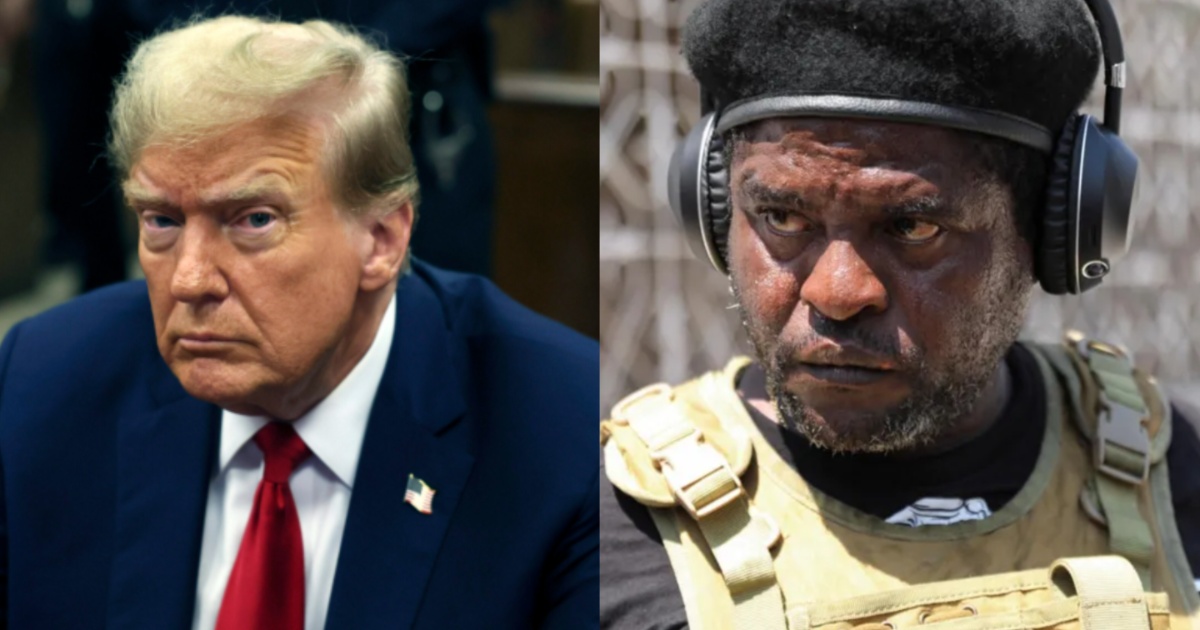Donald Trump has put a staggering $5 million price on the head of Haiti’s most feared gang boss, Jimmy “Barbecue” Chérizier — and the heat is officially on. The 48-year-old ex-cop turned warlord is accused of bankrolling his bloody reign over Port-au-Prince by funnelling cash from the United States straight into the pockets of his gun-toting enforcers.
The Justice Department says the massive reward will go to anyone who can help capture or convict Chérizier, who is wanted for allegedly violating U.S. sanctions. Prosecutors claim he and his alleged accomplice, Bazile Richardson, cooked up a scheme to collect money from Haitian-Americans and route it back home to pay gang wages and buy weapons. Richardson, a naturalized U.S. citizen, was arrested in Texas last month — but “Barbecue” is still out there, armed, dangerous, and running the streets.
🚨 BREAKING: Gang leader Jimmy “Barbecue” Cherizier indicted for conspiracy to violate U.S. sanctions. U.S.-based co-conspirator Bazile Richardson arrested in Texas. pic.twitter.com/TwpNSEDmo2
— Haitian Times (@HaitianTimes_) August 12, 2025
U.S. Attorney Jeanine Pirro didn’t hold back, calling him “a gang leader responsible for heinous human rights abuses, including violence against American citizens in Haiti.” That’s putting it mildly. Chérizier heads the G9 Family and Allies alliance of heavily armed gangs, accused of murders, rapes, extortion, and kidnappings that have turned Haiti’s capital into one of the most dangerous places on Earth.
His nickname “Barbecue” is a story in itself. He says it comes from his mom’s grilled chicken stand. Locals whisper it’s because he used to torch enemies’ homes with people still inside. Either way, it’s stuck, and it’s now plastered across wanted posters with a multi-million-dollar reward.
The warlord’s rap sheet is long and bloody. He’s blamed for the 2018 La Saline massacre, where at least 70 people were slaughtered and hundreds of homes burned to the ground. He’s been on the U.S. Treasury’s sanctions list since 2020, with the U.N. adding their own sanctions two years later.
According to prosecutors, Chérizier’s fundraising network in the U.S. was brazen. Haitian-Americans were allegedly told to send cash, which was then passed through middlemen in Haiti. In some cases, receipts were reportedly photographed and sent back, proof that the money had reached the right gang boss.
Assistant Attorney General John Eisenberg said flatly, “The National Security Division does not tolerate criminal gang fundraising in the United States,” warning that anyone helping “Barbecue” could face serious consequences.
Haitian residents have come together to protest former President Donald Trump this evening at his rally in Uniondale, NY. @DCReportMedia pic.twitter.com/EiiIv1naYO
— Jack Walsh (@jdwalsh23) September 18, 2024
Chérizier’s reach goes beyond street crime. His G9 alliance played a key role in the wave of violence that toppled Haitian Prime Minister Ariel Henry last year, throwing the already fragile country into even deeper chaos.
Haiti remains trapped in a nightmare of gang control, poverty, and fear. The U.N. says more than 3,100 people were killed in the first half of this year alone, despite the arrival of a Kenyan-led security force to try to stabilize the country. Most of Port-au-Prince is still in the hands of heavily armed gangs, and ordinary Haitians are caught in the crossfire.
For now, “Barbecue” is believed to be hiding somewhere in Haiti. With $5 million on the table, U.S. officials are betting someone will decide the payday is worth more than their loyalty and bring one of the world’s most notorious gang leaders to justice.









